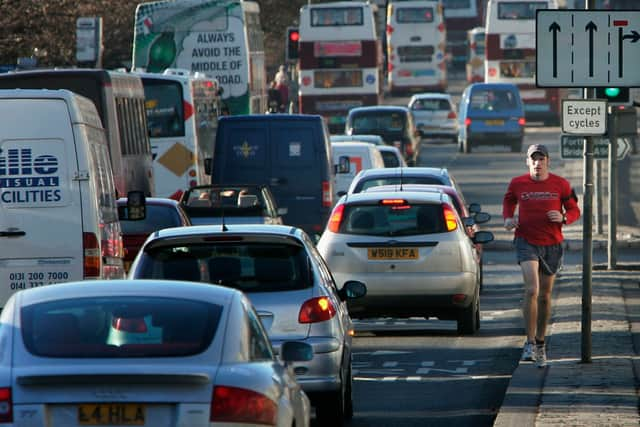Exclusive: car industry risks ‘imploding’ in cost of living crisis as finance debt increases to nearly £40bn
and live on Freeview channel 276
The car industry is at risk of “imploding” during the cost of living crisis, experts have said, as companies push more and more customers closer to bankruptcy.
UK car finance debt has nearly quadrupled since 2009 amidst the spiralling cost of living crisis, an investigation by the the Car Expert has revealed.
Advertisement
Hide AdAdvertisement
Hide AdThe automotive consumer advice site reports that total car finance debt has soared from £11billion in 2009 to nearly £40bn this year, representing a rise of £29bn or an increase of 253%. This comes as more people are borrowing cars - both used and new - as household budgets continue to be stretched.
An increase in borrowing - and the debt that follows - is also due to the fact that wages are not rising in line with the rising costs of vehicles. The Car Expert’s analysis of figures provided by the Finance & Leasing Association revealed that since 2009, the average finance value for new car purchases has risen three times faster than the average weekly earnings during the same time period.
With financial instability becoming increasingly widespread across the country, the sheer scale of this debt is reportedly now a “growing concern” for motorists. Meanwhile, experts have warned that “thousands of households” could be facing “serious financial impacts” that go beyond car repossession, such as bankruptcy.
Stuart Masson, from The Car Expert, said: “Years of increasing car finance borrowing have brought us to a precarious position, and the car industry risks imploding by pushing its customers ever-closer to bankruptcy. We are potentially looking at thousands of households finding themselves in serious trouble in the coming months.”
Advertisement
Hide AdAdvertisement
Hide Ad

He explained: “Over the last decade, average wages have not kept pace with the growing level of debt. Whereas wages have increased by 33% since 2009, the debt borrowed on new cars has more than doubled, while average used car finance debt has significantly increased by 87% over the same period.
“If the UK continues to experience spiralling inflation, we may have to brace for a significant proportion of borrowers defaulting on their debts, leading to their vehicles being repossessed and possible bankruptcy.”
He also said that with many consumers trying to “go green”, debt burdens will be even greater as electric cars are more expensive than petrol or diesel cars. Mr Masson continued: “And as energy costs drive ever upwards, the promise of lower running costs to offset that increased borrowing is not forthcoming.”
According to the organisation’s research, a key contributor to the inflated debt burden is the increasing popularity of ‘personal contract purchase car finance’ - which The Car Expert says is often “mistaken for a leasing or rental agreement, when in fact they are purchase agreements”. Essentially, consumers borrow the total value of the car minus the initial deposit, with the final “balloon payment” (which is the projected future value of the vehicle) due to be paid at the end of the loan period.
Advertisement
Hide AdAdvertisement
Hide Ad“The industry needs to be more transparent about what these PCP deals entail,” Mr Masson argued. “Manufacturers, dealers and the media should be clear that these are purchase agreements and that the balloon payment is part of the total amount borrowed.”


Also at risk is the car industry itself, as it is “utterly reliant on people buying cars they don’t need with money they don’t have” - according to Mr Masson. But as people become more reluctant to borrow or spend amidst the cost of living crisis, or simply do not have the means to, the industry risks “a collapse” just as it did during the coronavirus pandemic.
New car finance debt now totals £17.5billion in the last year, while used car finance adds a further £22.2 billion to the burden.
Comment Guidelines
National World encourages reader discussion on our stories. User feedback, insights and back-and-forth exchanges add a rich layer of context to reporting. Please review our Community Guidelines before commenting.